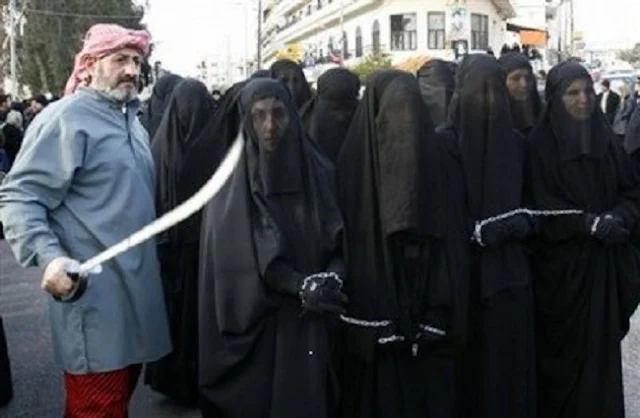
Women in Islam are guided by primary Islamic sources of personal law, namely the Quran and hadiths, as well as secondary sources such as the ijma, qiyas, ijtihad in form such as fatwas; the secondary sources vary with various sects of Islam and schools of jurisprudence (madhhab). In certain regions, in addition to religious guidelines, pre-Islamic cultural traditions play a role. Islamic laws and cultural customs impact various stages of a Muslim women's life, including her education, employment opportunities, rights to inheritance, female circumcision, dress, age of marriage, freedom to consent to marriage, marriage contract, mahr, permissibility of birth control, divorce, sex outside or before marriage, her ability to receive justice in case of sex crimes, property rights independent of her husband, and when salat (prayers) are mandatory for her. Polygyny is allowed to men under Islam, but not widespread; in some Islamic countries, such as Iran, a woman's husband may enter into temporary marriages in addition to permanent marriage. Islam forbids Muslim women from marrying a non-Muslim. There is debate and controversy on gender roles according to Islam.
Sharia provides for complementarianism, differences between women's and men's roles, rights, and obligations. Being a Muslim is more than a religious identity; Islam outlines and structures ways in which Muslim women should live their lives on a day-to-day basis. In majority Muslim countries women exercise varying degrees of their religious rights with regards to marriage, divorce, legal status, dress code, and education based on different interpretations. Scholars and other commentators vary as to whether they are just and whether they are a correct interpretation of religious imperatives.
Sharia provides for complementarianism, differences between women's and men's roles, rights, and obligations. Being a Muslim is more than a religious identity; Islam outlines and structures ways in which Muslim women should live their lives on a day-to-day basis. In majority Muslim countries women exercise varying degrees of their religious rights with regards to marriage, divorce, legal status, dress code, and education based on different interpretations. Scholars and other commentators vary as to whether they are just and whether they are a correct interpretation of religious imperatives.

Stop this bullshit o coward motherfucking dog what is your reality haa If you have guts then comment your number I'll show you !!
ReplyDeleteAb hindi me sun krishna ki kitni biwi thi batau tujhe kitno ke sath kaha soya batau tujhe ram ne apni hi biwi ki agni pariksha li aur bachche hone ke baad chhod diya aur bohot misaale hai bhadwe sun sab bardhasht hai lekin aisi bhadwagiri nhi delet kr madarchod nhi to tu gyaa!!
Aur sahi history ek baar padh lena bhutnike mai ye nhi keh raha ki desh me lado lekin tum jaise bhadwe na apne dharam ke hote nahi kisike tum log cancer ho i mean tere jaise hate failane wale bhadwe
Abe Kutte, Ye sach hai. Tere biwi burka ke andar kuch nahi pahenthe. Burka uthre tho kullam kulla dhek sakthe....Ha Ha Ha....
DeleteThis is not TRUE
ReplyDelete